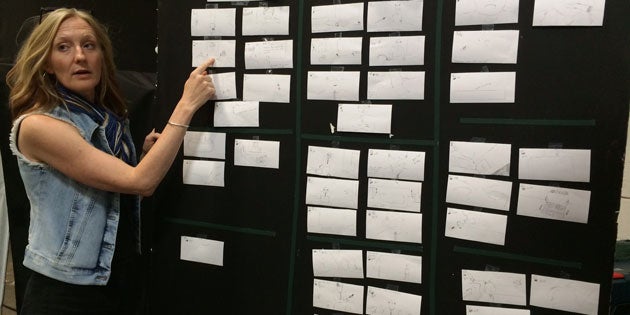With a bachelor’s degree in political science and a master’s degree in English from the College of Charleston, Delacey Skinner ’95 (M.A. ’97) has made good use of her education, earning recognition in the fields of both Southern literature and national politics.
As a senior vice president and managing director of political campaigns at GMMB – an advertising agency in Washington, D.C. – Skinner writes, develops and directs messaging and advertising campaigns for complex and challenging issues.

Delacey Skinner ’95 (M.A. ’97) has made a name for herself in both Southern literature and national politics.
Skinner’s creative, forward-thinking strategies for hard-to-win campaigns have drawn the attention of the political and issue advertising community. At the 2012 American Association of Political Consultants Conference, for example, she received Reed and Pollie Awards and was also recognized as part of the “Best of the Best,” including awards for the Best Online Ad and the Best Independent Expenditure Ad.
Prior to joining GMMB, she served as communications director for Virginia Gov. Tim Kaine for three years and as his press secretary for his 2005 campaign. In 2004, she was deputy campaign manager and communications director for America Coming Together’s New Hampshire office, and helped New Hampshire become the only red-to-blue state in the 2004 presidential election.
Before entering politics, Skinner launched the Southern Literature Council of Charleston. She also taught English 101 and 102 at the College, where she received her master of arts in English in 1997.
But enough about her professional life – it’s Skinner’s private life that has recently gained attention. On April 22, 2016, Skinner was published in the New York Times‘s popular Modern Love column. Read Skinner’s reaction to her ex-boyfriend’s new girlfriend in her essay, “All Twisted Up by Gender Bending.”
“Gender is something I’ve been thinking about for a long time,” says Skinner, whose master’s thesis was titled, “Hunger, Androgyny, and the Creative Impulse in Hemingway’s Oeuvre.” “There’s a lot of public dialogue today about gender, and a lot of it is hostile and fear-based. I wanted to explore my own feelings about gender in an honest way that was vulnerable, accessible and compassionate.”
Her own vulnerability, however, was the least of her worries when she learned the essay would be published: Instead, it was “fear of misinterpretation,” she says. “My biggest concern was inadvertently causing any pain for transgender women, who face outrageous discrimination in many forms, as well as unfair, hurtful attacks from some people in the feminist movement.”
That fear was put to rest by the responses the essay has received, “from all kinds of people with all kinds of perspectives.”
Skinner explains: “I’ve heard from transgender women who are appreciative and embraced the piece, as well as transgender women who were offended. I’ve really valued their comments. The essay also opened up a very rich conversation online in the comments section, and I’ve been really pleased that people have expressed their opinions and feelings – both positive and negative. I think the dialogue is important.”





